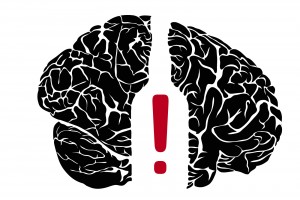Researchers found that heavy alcohol use in males during midlife paves the way to memory loss from dementia later in life.
I thought that this would be a good topic to review the effect of alcohol in general. Alcohol is a known cell poison, yet cardiologists keep on referring to the beneficial effects of that 1 glass of wine per day that will prolong your life. I will attempt to explain these diverse effects, where small amounts are supposed to be good for you while high amounts can be very damaging.
Review of the effects of alcohol
50% of the world population drinks alcohol, 10% to 20% have chronic alcoholism (Ref.1). Just recently a Guardian news study was released showing that an astounding 25% of Russian men die before reaching the age of 55, compared to only 7% of men in the United kingdom and less than 1% of men in the US. The study looked at the effects of consuming large amounts of vodka. There are about 10 million chronic alcoholics in the US. Chronic alcohol consumption leads to 100,000 deaths every year in the US. More than 50% of these deaths are from traffic accidents, the rest from medical problems caused by alcohol (Ref.1). Most of the alcohol gets detoxified through the liver cells and is metabolized into acetaldehyde. This involves the cytochrome P-450 system. That means that when a person also takes narcotics, sedatives or psychoactive drugs that are also metabolized through this liver enzyme system drugs and alcohol are taking much longer to be metabolized. This can lead to lethal overdoses that we hear about on TV all the time, hence the warning that you must not mix alcohol with drugs.
Alcohol is a cell and nerve poison. The most vulnerable organs in the body are the liver, brain, heart, pancreas, bone marrow and stomach. So, here are a number of conditions caused by drinking alcohol:
a) Anemia: When a person drinks heavily and regularly anemia shows up in a blood test. Alcohol has a toxic effect on the bone marrow, which interferes with the production of red blood cells. But certain vitamins required by the bone marrow to manufacture red blood cells are often also missing in the diet of an alcoholic, which contributes to anemia as well.
b) Cirrhosis of the liver develops in 10% to 20% of heavy drinkers. With cirrhosis part of the liver cells get replaced by fibrotic tissue and in advanced cases this can lead to a hepatic coma and death. Others are developing alcoholic hepatitis. This is an inflammation of the liver with fever and jaundice where the skin and eyeballs turn yellow. It is associated with severe abdominal pain.
c) Gastritis: Alcoholic gastritis is common, but often undetected. The affected individual may just have stomach pains for a few days, or vomit food and/or blood in addition. With continued use of alcohol it may turn chronic. Alcoholic gastritis can turn into gastric ulcers with massive bleeding that often lead to death.
d) Pancreatitis: The pancreas is a particularly vulnerable glandular tissue, which gets damaged by regular alcohol intake and with chronic alcohol intake gets partially replaced by fibrotic tissue causing the feared and painful chronic pancreatitis. This is a condition with vomiting and severe abdominal pains that can be unrelenting.
e) High blood pressure, seizures, dementia, depression, heart irregularities and nerve damage:
You may ask yourself how all of these conditions would be reasonably under one heading. The heading for this is “nerve damage”. Let me explain: The sympathetic nerve is very sensitive to alcohol toxicity and when the sympathetic nerve fibers are damaged, you will develop high blood pressure. You see your physician, get blood pressure medication, but the pressure is difficult to control, if you continue to drink alcoholic beverages. It does not make sense to just add blood pressure pills and hope that this will cure your problem. Seizures are due to direct nerve damage in the more sensitive parts of the brain, which will cause these areas to produce extra electrical activities, which we call seizures. Again, just treating with anti-seizure medications is not the solution. Avoidance of alcohol is the other part of the treatment schedule. Dementia from heavy alcohol use is due to direct nerve atrophy in the brain. Our brain shrinks normally 1.9% to 2.8% per decade, depending on which research papers you read. But in the presence of heavy drinking the frontal lobe of the brain is particularly vulnerable to brain shrinkage.
As this publication shows, mild and moderate drinkers did not suffer more frontal lobe shrinkage than abstainers, but heavy drinkers had a 1.8-fold higher risk of frontal lobe shrinkage on average when compared to abstainers. It was calculated that alcohol had contributed 11.3% to that frontal lobe shrinkage.
The rest of the toxic effect on the nerve tissue explains why depression would develop. The frontal brain contains most of the serotonin producing nerve cells. When serotonin-producing nerve fibers get damaged, the body does not produce enough serotonin to prevent depression from setting in; GABA producing cells often also get damaged, which causes anxiety. It’s not good enough to just prescribe anxiolytic drugs to which the patient will get addicted. The whole person needs to be treated, and abstinence from alcohol has to be part of the program.
Heart irregularities (atrial fibrillation, ventricular fibrillation) can be life-threatening complications due to the toxic effect of alcohol on the nerve fibers within the heart muscle. Emergency physicians are aware of the connection of these conditions to alcohol consumption. Some people’s hearts are more sensitive to the effects of alcohol than others. The most common cause of temporary atrial fibrillation is excessive alcohol intake (holiday heart) according to Ref. 2.
Finally there is the effect of alcohol on nerves in the body. This explains that heavy alcohol consumers can come down with painful pins-and-needles sensations in their hands and feet or with numbness or loss of muscle strength. When the parasympathetic nervous system is affected embarrassing incontinence or constipation can result. Erectile dysfunction in men is also very common. Viagra and continuing to drink is not the solution.
f) Gout: This painful formation of uric acid crystals in joints can be precipitated in sensitive individuals by consuming alcohol in combination with eating large helpings of beef. There may be a history of gout in the family. Treatment for this is to refrain from alcohol and avoid foods that are leading to uric acid production when ingested.
g) Cancer: When the body detoxifies alcohol in the liver, the breakdown product is acetaldehyde, which is a known cancer producing substance. A whole array of cancers are known, which come from heavy, chronic alcohol consumption: cancers in the mouth, larynx, esophagus, stomach, pancreas, liver and colorectal cancer have all been linked to excessive alcohol intake.
h) Cardiovascular disease: heart attacks and strokes can be caused particularly by binging; it is thought that binging makes platelets from the blood more sticky so they clump together and cause blood clots, which in turn leads to heart attacks and strokes.
i) Infections: Alcohol weakens the immune system, which is another effect on the bone marrow similar to causing anemia, except that this is the toxic effect on the white blood cells and lymphocytes. Heavy alcohol consumers are more prone to pneumonia, to HIV, sexually transmitted diseases, and tuberculosis.
Cardiology view of preventative alcohol
Despite all of these hair raising toxic effects cardiologists have painted the rosy picture that 1 glass of wine for women and 2 glasses of wine for men per day will prevent heart disease. What is the true story here?
Ref.2 points out that there are about 100 prospective studies that confirm that there is an inverse relationship between mild to moderate alcohol consumption and “heart attack, ischemic stroke, peripheral vascular disease, sudden cardiac death, and death from all cardiovascular causes”. It describes further that the reduction of risk in these various studies was persistent and consisted of a 20% to 45% risk reduction. Using blood tests investigators have found that this is because of an increase of HDL cholesterol, reducing blood clotting, making platelets less sticky and reducing inflammation as evidenced by a reduction of the C-reactive protein. Further research has pinpointed that it is the phenols and resveratrol that are contained in alcoholic beverages that are responsible for the beneficial effects. The bad news is that three glasses of wine or more do the opposite, so does binge drinking. Unless you are extremely disciplined and never increase your allowed limit (1 drink for women, 2 drinks for men) you will CAUSE heart disease rather than PREVENT it (Ref.2). Some people have a family history of breast cancer or colon cancer and they should avoid alcohol altogether; also people coming from alcoholic families should avoid alcohol.
Conclusion
Where does this leave us with regard to prevention of heart attacks, strokes and hardening of the arteries in the legs (peripheral vascular disease)? If you are disciplined and stick to the limits, you could prevent 20% to 45% of cardiovascular risk. The brain study mentioned in the beginning of the blog would also confirm that there was no difference between dementia or brain shrinkage when mild to moderate drinkers were compared to abstainers over 10 years. What is not told by the wine industry is that the same effects that prevent cardiovascular disease in mild to moderate drinkers can also be achieved by natural means: exercising regularly will raise your protective HDL cholesterol; taking ginkgo biloba, flax seed and omega-3 fatty acids thins your blood and the platelets are getting less sticky; omega-3 reduces inflammation and resveratrol elongates telomeres making you live longer. At the A4M conference in Las Vegas in December 2011 there were three speakers who pointed out that even small amounts of alcohol will poison mitochondria of your cells and interfere with normal hormone action. This was enough to make me join those who abstain alcohol completely. One thing has not yet been investigated in long-term studies, namely how small effects of alcohol may affect the body over several decades and over an entire lifetime. Despite all the promises of interest groups that red wine is a trendy drink for those interested in heart health, the fundamental long-term studies are missing. What does a guy do with a healthy heart and a brain that is not functioning too well? I just do not want to be the guinea pig in that worldwide study.
More information on alcoholism: http://nethealthbook.com/drug-addiction/alcoholism/
References:
- Kumar: Robbins and Cotran: Pathologic Basis of Disease, Professional Edition, 8th ed. © 2009 Saunders
- Bonow: Braunwald’s Heart Disease – A Textbook of Cardiovascular Medicine, 9th ed. © 2011 Saunders
Last edited Nov. 7, 2014







